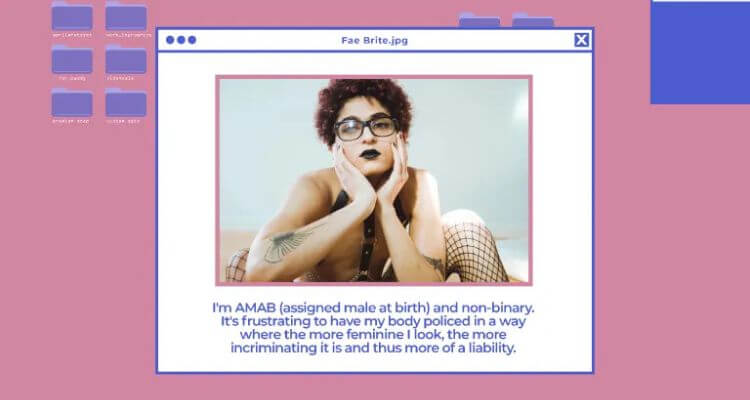Play as a Sex Worker in New Onlybans Game
Experience the often hard reality of working in the sex industry

Developed by a coalition of professional sex workers and their allies, your goal as an OnlyBans player is to make enough money to live on—while running the risk of getting deplatformed by the social media sites your income depends on.
Led by artist and sex worker, Lena Chen, and tech expert, Maggie Oates, OnlyBans is more than a camsite simulator; it also features links and education services to support those in the commercial sex industry.
“Similar to myself, everyone on our team has had lived experience in the sex industry or has been deeply involved in sex worker advocacy. Many of us are also creatives dealing with sexuality in our art,” Chen told Hyperallergic.
Drawing attention to social media’s power to cripple a sex worker’s ability to earn a living, she adds, “I was inspired to create OnlyBans as a result of my own experiences being deplatformed as an artist and sex worker. I’ve faced continual censorship, even while carefully abiding by the terms of service agreements on Facebook and Instagram.”
Access to social media not only allows sex workers to connect with potential clients and get paid for their services but also gives them access to essential health and legal services.
In a sex worker’s shoes

The browser-based game begins by asking the player to choose a professional name. After choosing one based on your real name or a wholly fictitious pseudonym, your goal is to make at least $200 in six weeks.
Right off the bat, there are problems, like selecting a picture the social media platform considers “too sexy” that immediately gets you red-flagged.
Red flags also pull up frequently heart-wrenching quotes from sex workers whose content was removed or their account terminated.
For example, J.P. (Themme) shared, “I’m a trans diasporic person by way of the Dominican Republic. These pictures were flagged on Instagram, and I’m currently on probation with my account near deletion.”
OnlyBans draws attention to the fact that plus-sized, women of color, and queer-identified people are targeted more often than cis-gendered users.
“For the most part, we are not breaking the rules,” Chen explained, “rather, we are being targeted by biased algorithms that flag our content as inappropriate while allowing celebrities and influencers to get away with posting much more risque material.”
Social media’s over-reliance on algorithms that unfairly target sex workers and the LGBTQIA community is far from new.
In 2020, INTERNETLAB exposed flaws in Google’s Perspective machine-learning system and how it repeatedly red flags non-exploitative sex-related content while ignoring hate speech posts.
Misguided laws and unwilling social media

Echoing the growing number of outraged sex worker’s rights advocates, Chen puts the blame squarely on FOSTA-SESTA, saying it is, “legislation that claims to prevent sex trafficking, though it has never actually been used by federal prosecutors to seek criminal restitution for victims of sex trafficking.”
FOSTA-SESTA puts social media platforms on high alert and, preferring not to enter into a freedom of expression battle with the U.S. government, cracks down on people who can’t fight back.
This is where we are now–a time when sex worker accounts get terminated at any time and for apparently no reason, where they are a single red-flagged post away from not being able to pay their bills.
The good news is Chen and her team’s hard work appears to be paying off. In the same Hyperallergic article, she says, “A contributor (whose story/image is featured in the game) said that OnlyBans helped their friends finally understand and empathize with the hurdles they faced in doing their work.”
Your body, your right
OnlyBans may not be a triple-A, big studio game, but it does what Grand Theft Auto V, Call Of Duty, Minecraft, and Stardew Valley can’t; gives its players a glimpse into the real fears and frustrations of those who are too frequently and unfairly discriminated for marketing their own sexuality.
Play it to support sex workers, highlight social media’s mistreatment of them, or feel what it is like to try to give people what they want—only for social media platforms to say they don’t want you.

















